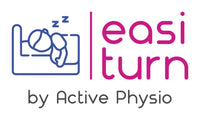News
-
June 03, 2023Though frequently under-discussed, proper c section incision care is a critical part of the healing process. More specifically, many individuals who deliver by cesarean aren’t informed about the benefits of c section scar massage during recovery. Read on to find out how Physiotherapy can help you with you recovery...
-
February 03, 2023
Pelvic Girdle Pain and how Mama Turn can help!
Pelvic girdle pain (PGP) is a common and often debilitating condition that affects many people, especially women during pregnancy or after childbirth. This type of pain can be experienced in the pelvic region, lower back, hips, and even legs, and can severely impact daily activities. Understanding the causes of PGP and the available treatment options is crucial for anyone suffering from this condition.
Causes of Pelvic Girdle Pain
PGP can have many underlying causes, including but not limited to:
- Pregnancy: The weight gain, hormonal changes, and physical stress during pregnancy can cause PGP.
- Hormonal changes: Hormonal changes in the body, such as during menopause, can cause PGP.
- Genetics: Some people may be more prone to developing PGP due to genetic predisposition.
- Posture and mechanics: Poor posture and mechanics, such as an increased arch in the lower back, can cause PGP.
- Previous injury: Previous injury or trauma to the pelvic region can increase the likelihood of developing PGP.
- Stress and lack of sleep can contribute to an increased sensitivity in the pelvic tissues.
Percentage of People Affected by Pelvic Girdle Pain
It is estimated that PGP affects about 20-30% of pregnant women, with some studies indicating that up to 50% of women may experience PGP during pregnancy. The condition can also affect women who have recently given birth, as well as men and women who are not pregnant.
Treatment Options for Pelvic Girdle Pain
Treating PGP can be challenging, but there are several effective options available. Some of the most commonly used treatments include:
- Physiotherapy: Physiotherapy is a key treatment option for PGP. Physiotherapists can help to relieve pain, improve posture, and develop exercise programs to strengthen the muscles and reduce the likelihood of re-injury.
- Medications: Pain medications, such as nonsteroidal anti-inflammatory drugs (NSAIDs) and muscle relaxants, can help to relieve pain.
- In some cases a pelvic support or brace can help reduce pain and improve mobility.
- Acupuncture: Acupuncture can be used to relieve pain and improve the functioning of the muscles and joints.
- Mama Turn can help you turn in bed much more easily, ensuring a good nights sleep and an overall reduction in pain.
In conclusion, pelvic girdle pain is a common and often debilitating condition that affects many people. Understanding the causes of PGP and the available treatment options is crucial for anyone suffering from this condition. If you are experiencing PGP, it is important to speak with your doctor or a physiotherapist to determine the best course of action. With proper treatment and management, PGP can be effectively managed, and patients can return to their normal activities.
-
September 13, 2022
How Easi Turn can help you get a great nights sleep!
Sleep is a vital to our general health and well-being, and none more so when we are trying to recovery from an injury or surgical procedure. Mama Turn and Easi Turn make turning in bed effortless, so it's super easy to change position without waking up; thus ensuring you get a restful and restorative nights sleep. -
March 15, 2022
Mama Turn features in Journal of POGP Spring 2022 - Journal of Pelvic, Obstetric and Gynaecological Physiotherapy
The Journal of Pelvic, Obstetric and Gynaecological Physiotherapy (POGP) is a UK-based Physiotherapy clinical interest group specialising in women’s and men’s health. The association produces a bi-annual journal of which in Spring 2022, Mama Turn was included in their new “Notes and News” section, which is dedicated to innovation in the field. It is safe to say that I was thrilled to feature in the journal!




